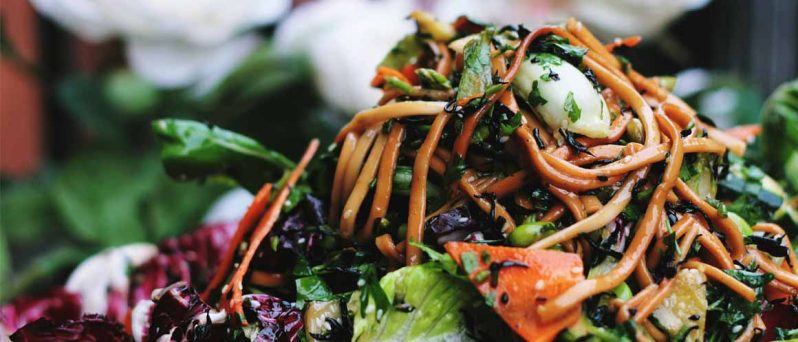A new collaborative report from Wen and PAN UK shows levels of toxic pesticides far above safe limits set for drinking water.
The report released Wen (Womens Environment Network) and PAN UK (Pesticide Action Network UK) on Menstrual Hygiene Day 28th May includes data from a study from 2024, with testing data from 15 boxes of mainstream, non-organic tampons from UK shops and supermarkets. The study found glyphosate tested from a tampon in one of the boxes at 40 times the level permitted in drinking water.
Glyphosate is the world’s most commonly used herbicide, and in 2015 the World Health Organization (WHO) declared it to be a probable carcinogen, meaning that exposure to glyphosate is linked to cancer.
The new report entitled Blood, Sweat, and Pesticides1 is a drive for better regulation around period products within the UK, however these findings also stress the need for greater oversight globally for intimately used products like pads and tampons. Absorption rates from internal exposure in the vagina is thought to be 10–80 times higher than through the skin on the surface of the body.
Natracare, the leading brand in organic and natural certified, disposable period care, believes this new study should encourage more regulatory standards for consumers to make better informed choices. For example, mandatory ingredients list for all period products and testing for the absence of chemicals of concern in products. Natracare is alarmed to see the same patterns playing out repeatedly in testing for chemicals of concern in period products with heavy metal residues2, nano-plastic fibre loss3 and now toxic pesticide residues all being found in tampons.
The report highlights that skin in and around the vagina is the most absorbent part of the body and is likely absorbing low levels of endocrine disruptors and toxic chemicals during menstruation. The lack of regulation for period products in the UK, EU and other markets is becoming increasingly apparent with consecutive studies and highlighting the potentially harmful risks to health when exposed to such residues on a monthly basis.
Natracare’s founding philosophy was to disrupt the conventional period products sector by advocating for full disclosure with regulatory control; and by designing for lower associated risks for personal health global environments. Susie Hewson built the brand in response to serious health concerns of dioxin produced as a by-product in the period products industry.
Just as we fought for regulatory authorities to require tampon manufacturers to test for Dioxin residuals, we continue to strongly support the need for regulations that require manufacturers to test for chemicals of concern like glyphosate.
Natracare is making recent testing data for its GOTS certified organic tampons, publicly available4 to offer full transparency and reassurance to consumers, the analyses show no detectable traces of pesticides such as glyphosate or other chemicals of concern.
Natracare proudly conducts precautionary testing to ensure the safety, efficacy and absolute minimum for contact with chemicals of concern. Natracare holds independently validated certifications to demonstrate exceptional environmental and ethical quality. In fact, Natracare tampons are certified to the Global Organic Textiles Standard (GOTS) — the gold standard for organic tampons — adding an extra precaution to guarantee the safety and quality of Natracare tampons. The GOTS certification underscores Natracare’s commitment to health and sustainability. GOTS has stringent regulations for testing and controlling residuals. The standard clearly defines the exclusion of toxic pesticides or chemicals of concern.
Consumers can trust that Natracare tampons , pads and wipes meet rigorous environmental and health standards. Natracare encourages consumers to stay informed and make choices that prioritise their health and that of the environment. Natracare remains committed to continuous improvement and transparency and are signatories to the Menstrual Health, Dignity, and Sustainability Act.5
You can view more or take action to keep toxic chemicals out of period products by signing this petition to the Chemicals Minister in the UK.
References
- PAN UK and Wen, 2025 – Blood, Sweat and Pesticides
- Environment International, 2024 – Tampons as a source of exposure to metal(loid)s
- Middlesex University, 2022 – Middlesex University research shines a light on extent of nanoplastics shed from tampons
- Natracare Tampon Pesticide Analysis Results:
- Wen – Menstrual Health, Dignity, and Sustainability Act
Notes to editors
Pesticide Action Network UK (PAN UK) is the only dedicated UK-based charity focussed on tackling issues caused by pesticide use. They undergo research and help promote and advocate for safer and more sustainable alternatives. PAN UK’s mission is to eliminate hazardous pesticides, reduce dependence on pesticides and to promote ecologically sound, and socially just, alternatives to chemical pest controls.
Women’s Environment Network (Wen) is a UK-based charity working to support women and their communities to take action for a healthier planet. They have national campaigns and also work at community level in London to support women and grass-roots movements to take environmental action. They are responsible for the Environmenstrual campaign to raise awareness of hidden plastic and toxic chemicals in conventional menstrual products and promoting more environmentally responsible alternatives.
Global Organic Textile Standard (GOTS) was developed by leading standard setters in the organic industry to define globally recognised requirements for organic textiles. They audit all aspects of organic: from the harvesting of the raw materials, environmentally and socially responsible manufacturing to labelling, textiles certified to GOTS provide a validated assurance to the consumer.
Natracare has been championing organic, plastic-free and toxin-free period products since 1989. Natracare’s mission is to empower consumers while safeguarding their health and our planet. As a campaigning brand for over 35 years, Natracare’s founding philosophy has always been to make certified organic 100% cotton tampons and plant-based, compostable pads and liners, to reduce unnecessary exposure to chemicals of concern.








